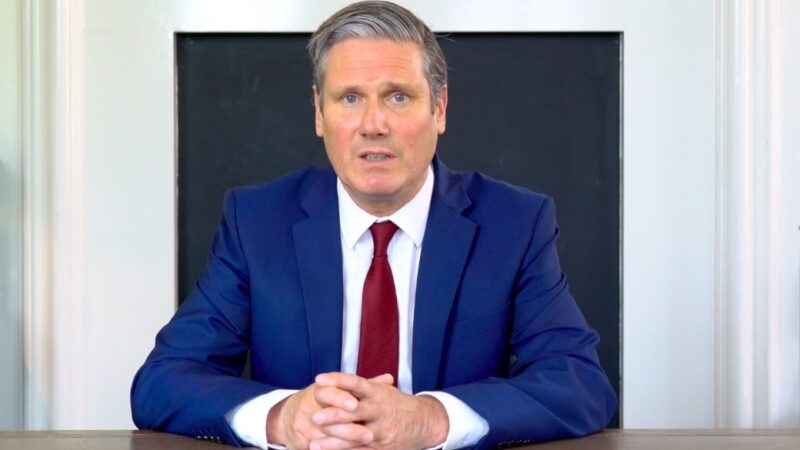
When Sir Anthony Eden broadcast directly to the nation in November 1956 amid the Suez crisis, Hugh Gaitskell demanded a right of reply. The opposition leader did not set a convention that such a response would have to be courteous or apolitical – far from it, he boldly called on the Prime Minister to resign. Keir Starmer did not do the same in his broadcast yesterday, of course. He reiterated his hope that a “national consensus” could be built during this crisis, and called for “clear directions” from the government after a chaotic 24 hours displaying some of the worst communications that this country has surely ever seen.
Some readers might have been expecting a more indignant message from the Labour leader, our most recent survey would suggest, or a mention of trade unions. That is certainly the kind of broadcast that would have been offered by Jeremy Corbyn, who has joined colleagues on the Labour left in describing the Prime Minister’s statement as a “thinly veiled declaration of class war”. But the approach to opposition taken by Labour under Starmer has decisively shifted. This is explored by Sabrina Huck in her column today, which highlights the contrasts between Corbynism and the new style.
This was not a broadcast created with one eye on the views of party activists. And many will think: quite right too! This was the first time most voters will have had a proper look at the new Labour leader. The key objective was to come across as constructive, sensible and proud of the UK’s efforts in the coronavirus crisis. Most importantly, as a Prime Minister in waiting. Will this strategy see Labour fall between two stools, positioning itself politically neither here nor there, à la Ed Miliband? Or might it be just the thing for a British electorate wanting calm in the aftermath of a global pandemic?
We’ve kicked off the week with a huge number of brilliant articles on LabourList, even if I do say so myself. An absolute must-read for anyone with interest in the future of Labour policy on work and pensions is Jonathan Reynold’s piece that sets out his priorities in the new brief. There will be no going back on the pledge to scrap Universal Credit, he assures readers. As for local government, Trafford Council leader Andrew Western is doing a series on how it is responding to challenges presented by Covid-19. The first is on adult social care. And there is plenty of news to keep up with, from Clive Lewis backing rent strikes to the upcoming developments on the furlough scheme, all on LabourList.
Sign up to LabourList’s morning email for everything Labour, every weekday morning.



More from LabourList
‘Can Labour win back young people on the environment?’
‘The narrative must outweigh the negative’
Starmer would defeat Streeting in leadership contest, poll suggests